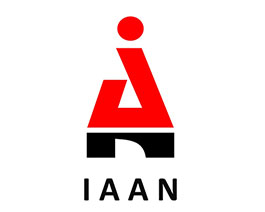
AI in Journalism: A Revolution or a Risk to Ethical Reporting?
Artificial Intelligence (AI) has rapidly become an integral part of journalism, changing the way news is researched, reported, and consumed. While AI-driven automation and data analysis offer unparalleled efficiency, concerns regarding journalistic ethics, misinformation, and job displacement continue to spark debate. Is AI a revolutionary tool that enhances journalism, or does it pose a significant threat to the core principles of the profession?
The Role of AI in Journalism
AI is being deployed across various facets of journalism, from automated news generation to audience engagement. Some of the key areas where AI is making an impact include:
- Automated News Writing – AI-powered tools like OpenAI’s ChatGPT, Google’s T5, and Bloomberg’s Cyborg can generate reports on financial updates, sports events, and even crime statistics with minimal human intervention. The Associated Press (AP) has been using AI for earnings reports, producing thousands of articles with high accuracy.
- Fact-Checking and Misinformation Detection – With the rise of fake news, AI-driven fact-checking tools like Full Fact, Logically, and Facebook’s DeepText help identify and debunk false narratives, ensuring the credibility of information.
- Data Journalism – AI enables data analysis at an unprecedented scale. The BBC and The New York Times utilize AI to analyze vast datasets, uncover hidden trends, and visualize complex stories in an easily digestible format.
- Personalized News Recommendations – AI-powered algorithms curate news feeds based on user preferences. Platforms like Google News and Flipboard use machine learning to offer personalized reading experiences.
- Transcription and Translation – AI-driven tools such as Otter.ai and Google’s Speech-to-Text allow journalists to transcribe interviews instantly, while real-time translation tools break language barriers in global reporting.
The Ethical Concerns: Is AI a Threat?
Despite its advantages, AI’s role in journalism raises serious ethical and professional concerns:
- Bias in AI Algorithms – AI models are trained on existing data, which may contain biases. This can result in skewed reporting or reinforcement of stereotypes, as seen in controversies surrounding Google’s AI-generated images.
- Job Displacement in Journalism – The automation of routine reporting tasks could lead to job losses in the industry, reducing the demand for entry-level journalists and fact-checkers.
- Loss of Human Judgment – While AI can process information rapidly, it lacks the nuanced understanding, ethical reasoning, and investigative depth that human journalists provide.
- Deepfakes and Misinformation – AI-generated deepfake videos and fabricated stories pose a significant threat to journalistic integrity, making it harder to distinguish truth from fiction.
AI as an Opportunity for Journalists
On the flip side, AI presents enormous opportunities for journalists who adapt to this technological shift:
- Enhanced Investigative Journalism – AI-powered tools help uncover hidden connections in large datasets. For instance, the International Consortium of Investigative Journalists (ICIJ) used AI to analyze the Pandora Papers, exposing global tax evasion schemes.
- Faster Reporting and Efficiency – AI tools reduce the time spent on repetitive tasks like transcriptions and data analysis, allowing journalists to focus on in-depth reporting and storytelling.
- Greater Accessibility and Inclusivity – AI-driven real-time translations and text-to-speech features enable wider accessibility for audiences worldwide, making journalism more inclusive.
The Future of AI in Journalism: Striking a Balance
The key to leveraging AI in journalism lies in responsible integration. Human oversight remains crucial to ensure ethical reporting, contextual accuracy, and investigative depth. News organizations must establish guidelines for AI usage, prioritize transparency in AI-generated content, and invest in AI literacy for journalists.
Conclusion
AI is neither a pure threat nor a guaranteed opportunity—it is a transformative force that must be carefully managed. As AI continues to evolve, the journalism industry must find ways to harness its benefits while safeguarding the ethical principles that define credible reporting. The future of journalism will depend on striking a balance between technological innovation and journalistic integrity.



